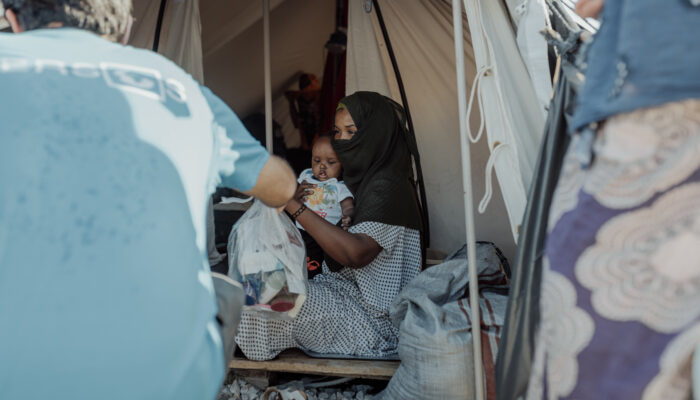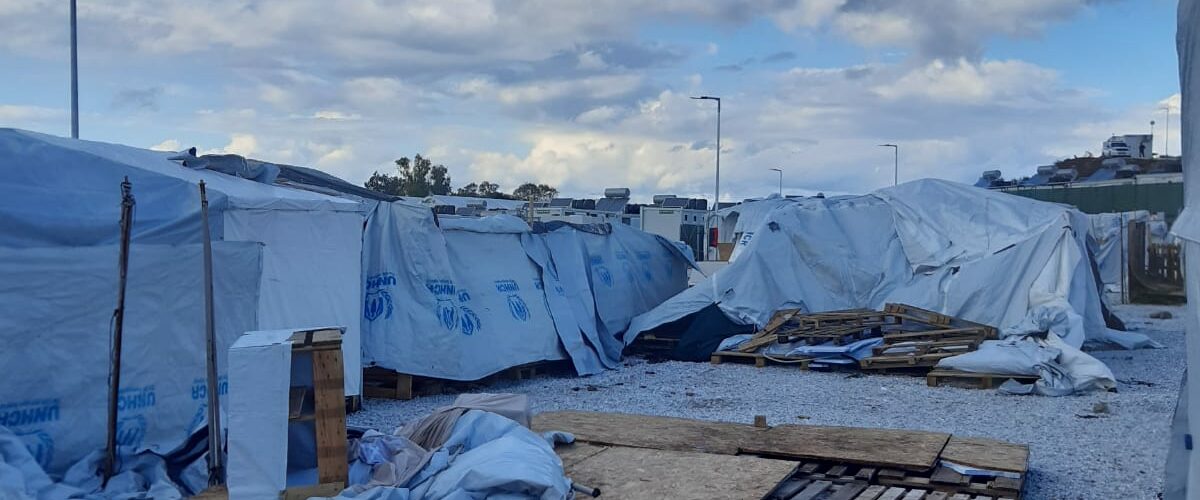Visiting a refugee camp - 5 questions and answers

Peter Heintze visited Lesbos last month
Peter, you recently visited Lesbos. What was the reason to do so?
KUNO is developing activities on a new priority theme: migration. During this visit I gained in-depth knowledge on some of the hard dilemmas related to migration and humanitarian action. Furthermore, my visit to Lesbos was a wonderful opportunity to meet my new KUNO-colleague Marianne, who is doing KUNO communications one day a week – so far Marianne and I only talked via video calls. And it was an opportunity to see where she was working the other days in the week: the refugee camp.
When you look at the situation on the island, what will stick with you the most?
Two things. The refugee camp is almost a closed camp. Refugees are only allowed to go out of the camp for a few hours a week. The refugees are forced to spend their days in lethargy, supported by well willing aid workers and closely watched by the Greek police. The other thing that will stick to me is that it was really very nice to stay in Mytiline-town. It was very cosy: the bars and restaurants had plenty of visitors, music and laughter. And of course lots of food and drinks. Having the refugees in the camps, really works well – for the local tourist industry. I really do not begrudge the Lesbos middle class their livelihood. But I also would like the refugees to have a decent living.
You visited some partner organizations of KUNO. What was your impression of their work on the island?
They all struggle. InterSOS, IRC, St Bootvluchteling, EuroRelief (some organizations I visited) work hard to make a difference for the refugees. And I saw many examples of how they do make a difference for many individual refugees. Arranging psycho-social care, arranging a place to sleep, arrange hygiene kits. But on the level of local refugee policies, they are supportive to a form of refugee management that becomes more grim by the day. They feel the pressure of the local authorities. NGOs try to push back to most new arrangements that limit the space for refugees even more. Local authorities, on the other hand, try to limit the operational space for NGOs and refugees.

Shockingly, I think this is exactly what European policy makers want to achieve.
Which subjects would you like to raise in different governments/actors after your visit?
I think the refugees on the Greek islands – as on the Balkan route and on the Belarus – Polish border – deserve a humane treatment. And what they are getting at the moment is not humane. The sad thing is – I am afraid – that the Greek authorities are fully supported by Brussels and the EU Member States. The least we could do is to speak out on behalf of these refugees.
Last but not least: Can you share a story that touched you?
I spoke with Ali, a young refugee from Afghanistan. He was 16 when he left his parents in Iran and travelled as an Unaccompanied Migrant Child to Greece. He got stuck on the island. He spend two years on Samos and now a year on Lesbos. He does not see much of a future. In hindsight, he was sorry that he did not stay in Turkey. In Turkey, he felt, he could have built some kind of a future. Since he arrived on the Greek islands, Ali completely lost a perspective on a future. I am afraid this is exactly what European policy makers want to achieve, and that makes me sad.
